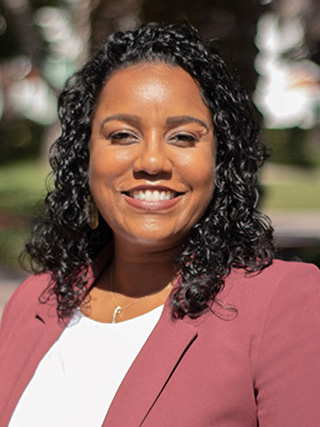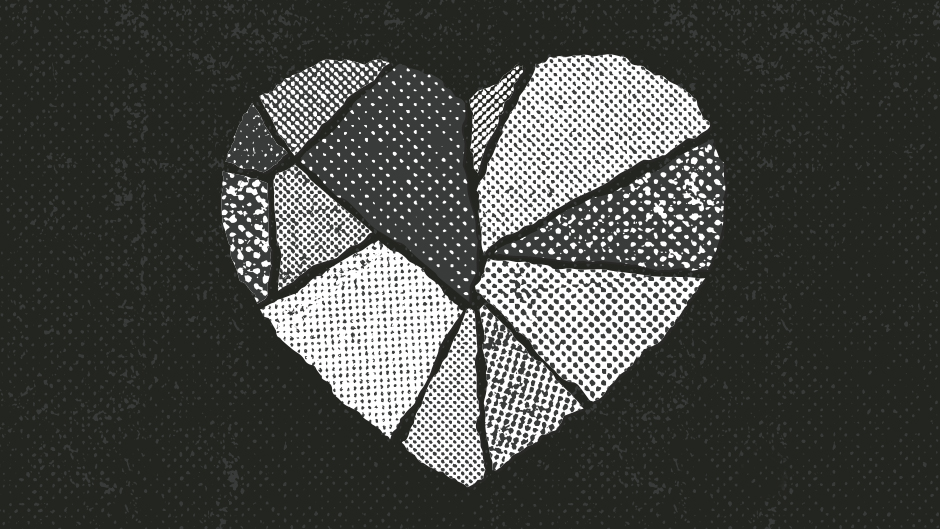Grief is a lonely journey.
It’s difficult to share because everyone experiences it in different ways.
The loss of a loved one, a divorce, losing one’s job, or a beloved pet can trigger a period of grief that can last days, weeks, months—even years.
Some who follow certain religions find comfort in the belief that there is an afterlife and that they will be reunited with their loved ones in the future. But to many, the loss can seem insurmountable.
Catherine Holder, staff psychologist at the University of Miami Counseling Center, delved into the complexities of grief, and how we can cope during these difficult times.

How can one describe grief?
“Grief often includes physiological distress, separation anxiety, confusion, yearning, obsessive dwelling on the past, and apprehension about the future,” according to the American Psychological Association. This definition only speaks to symptoms and not the function of grief or the complexity of loss. Loss can include both loss that comes from the death of a person as well as non-death losses (loss of relationship, functioning, freedoms, or lifestyle, etc.). It is also important to remember that grief is a natural and adaptive response to loss.
Much has been talked about the different stages of grief: anger, denial, etc. … Does everyone go through these stages?
Elisabeth Kübler-Ross popularized the “Five Stages of Grief Model,” and similar models suggest additional stages related to processing grief. Stage theories imply experiences occur in a certain order and that there is a final end point or resolution everyone reaches. However, current theorists move away from understanding people’s experiences in terms of stages. Grief responses are idiosyncratic and not as predictable as people once thought. Current conceptualizations of grief place greater emphasis on honoring individual, family, and community responses to loss.
When working with students around grief, they are often surprised when we explore how their own cultures/families manage or don’t manage grief.
Some common cultural or community practices around death or grief include memorial services, funerals, or engaging in activities that acknowledge the loss (going to that person’s favorite restaurant, having some sort of keepsake in remembrance of what/who was lost). Instead of thinking of grief proceeding in stages, there is a shift to identifying and coping with loss, as well as the ability to navigate one’s life proceeding loss. A question I help students to answer is, “How do you move forward or navigate a world now that you’ve experienced this loss?”
What are some of the things one can do to help heal during these times?
Healing is unique to everyone. Sometimes, individuals can look within their own cultures and communities of origin for rituals or practices that help their communities manage loss. Therapy can also help individuals navigate loss by providing a space of empathic support to process grief as well as explore the ways individuals can adjust to their lives post-loss.
Can one prepare oneself emotionally to sustain a loss?
Loss to some degree is inevitable, and there are several factors that can mitigate the impact of a loss, like factors that foster general mental health and well-being. Some simple steps can include:
- Develop a repertoire of self-care strategies that can help individuals manage difficult emotions. Some options may include cultivating a meditation/mindfulness practice, journaling, creating art, physical movement, etc.
- Cultivate flexibility in one’s thinking and the ability to problem solve. If one coping strategy is not working, what else can I do? Who else can provide me with the support I need right now?
- Identify individuals within your existing social network who can provide support and hold space for processing experiences. Perhaps leaning on the support of family, friends, or a grief support group may prove helpful in finding a way forward through one’s grief. Consider consulting with a community leader, elder, or mental health professional who can offer support.
What resources does the University have to help students, staff and/or faculty deal with grief?
Students are welcome to seek support through the University of Miami Counseling Center (UMCC). UMCC provides individual, couples, and group counseling to students. It also provides outreach programs to support the mental health and well-being of students. Employees of the University can access mental health services/support services through the Faculty and Staff Assistance Program (FSAP).
Additionally, the Children’s Bereavement Center is an excellent local resource for individuals coping with the death of a significant person in their lives. They provide in-person and virtual peer support groups for children, adolescents, young adults, and adults.

